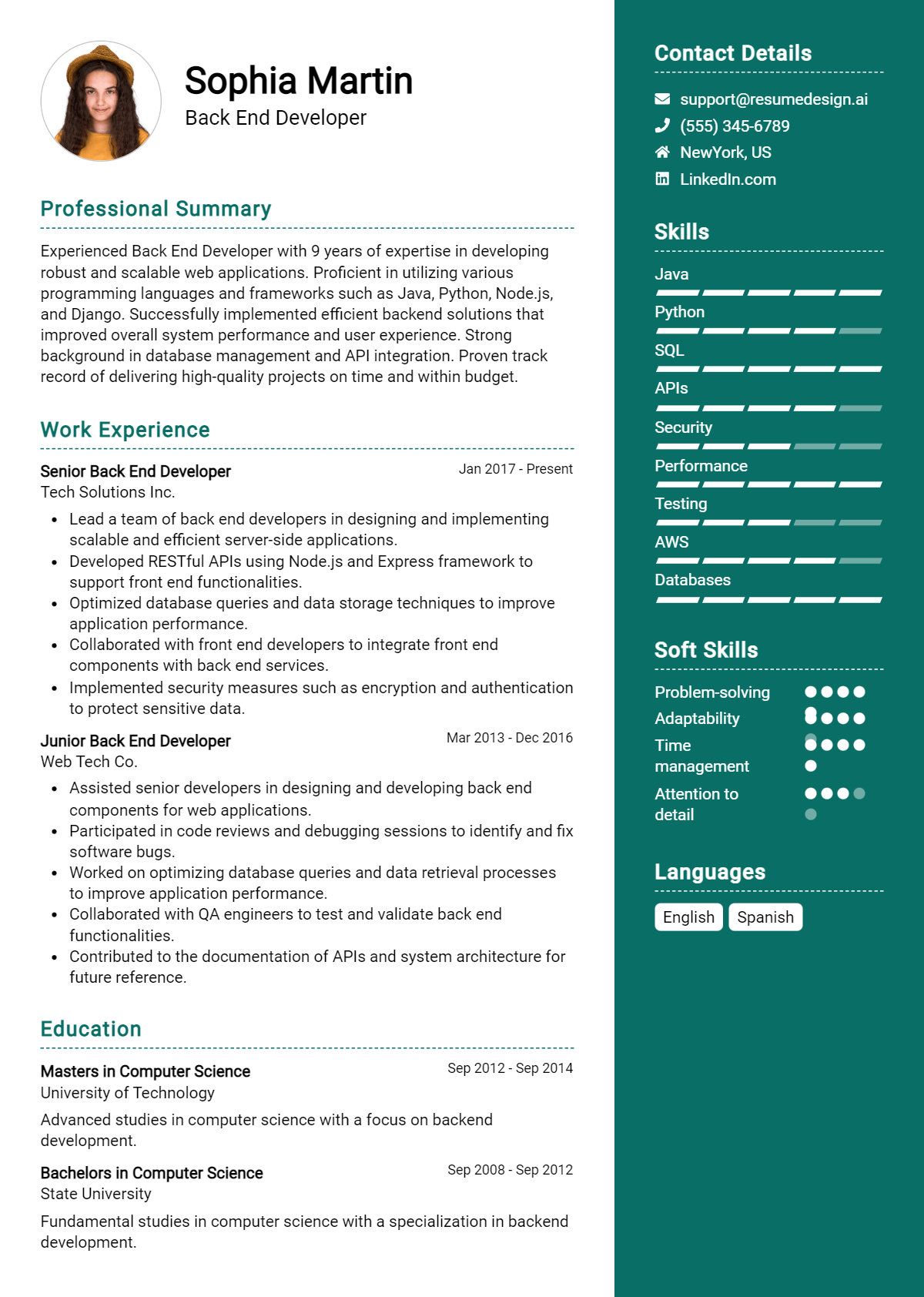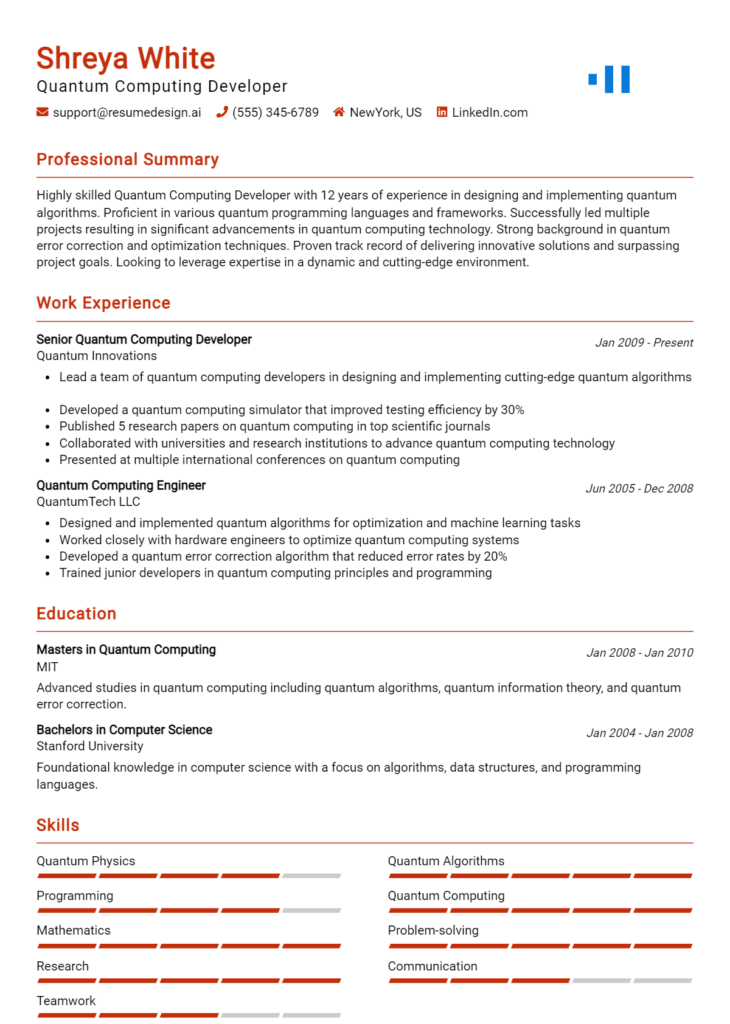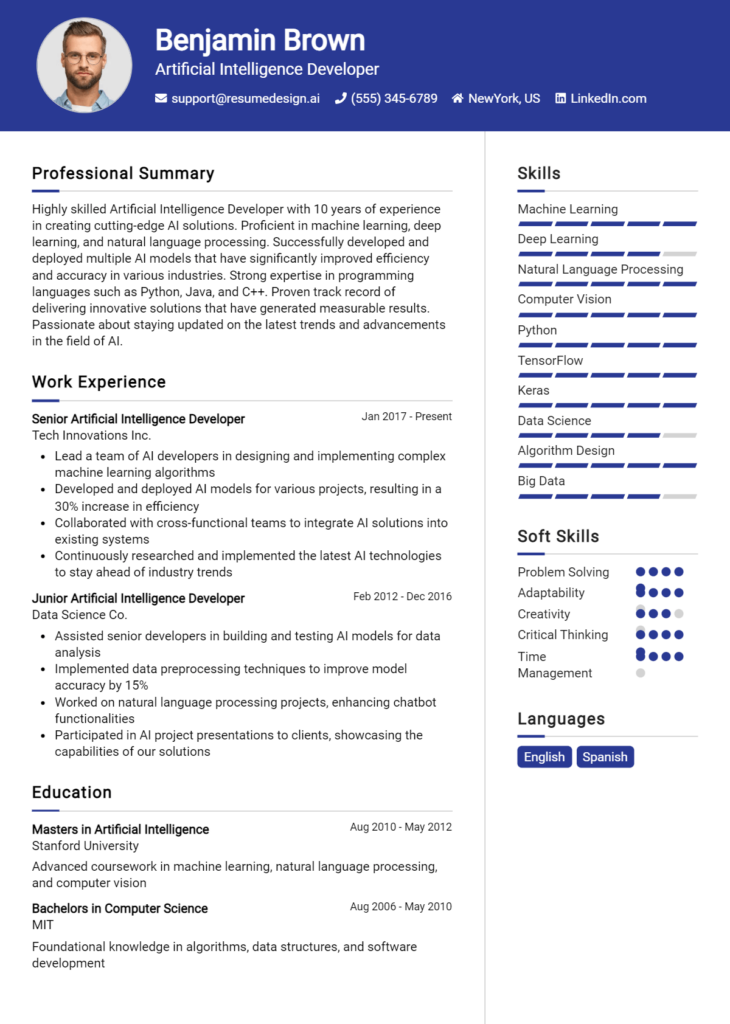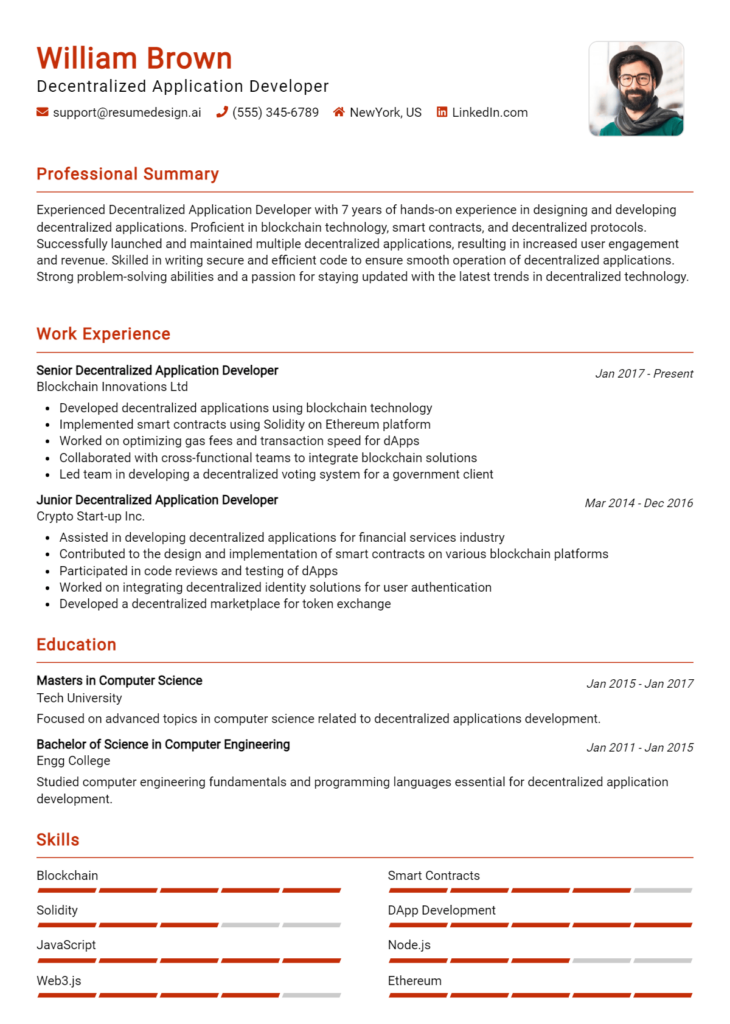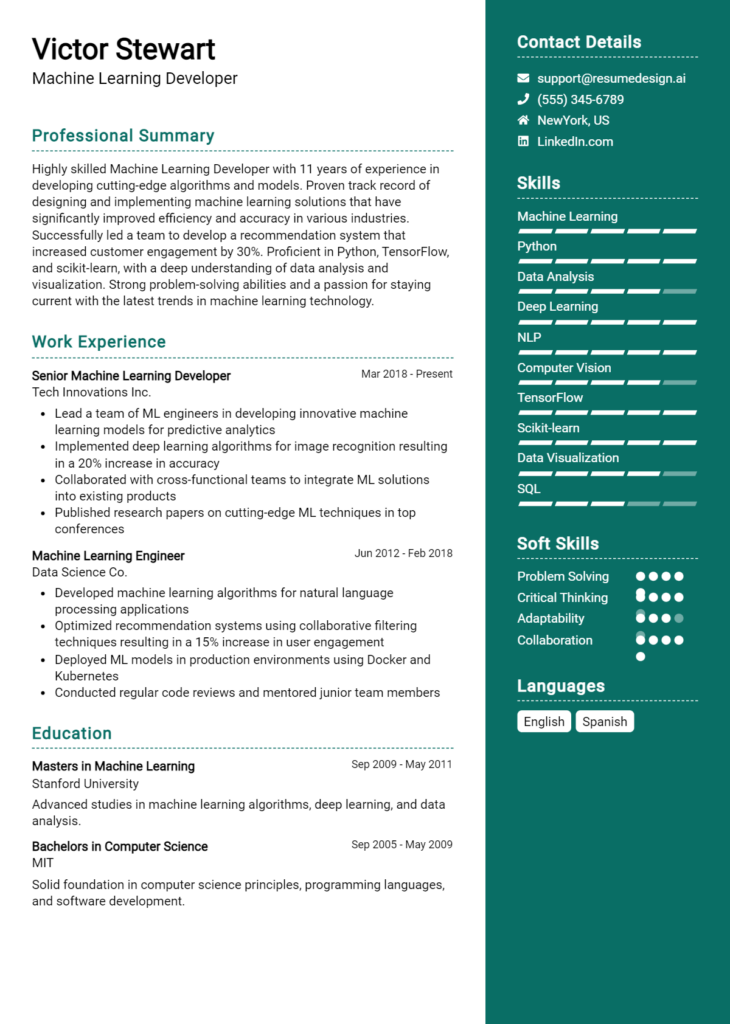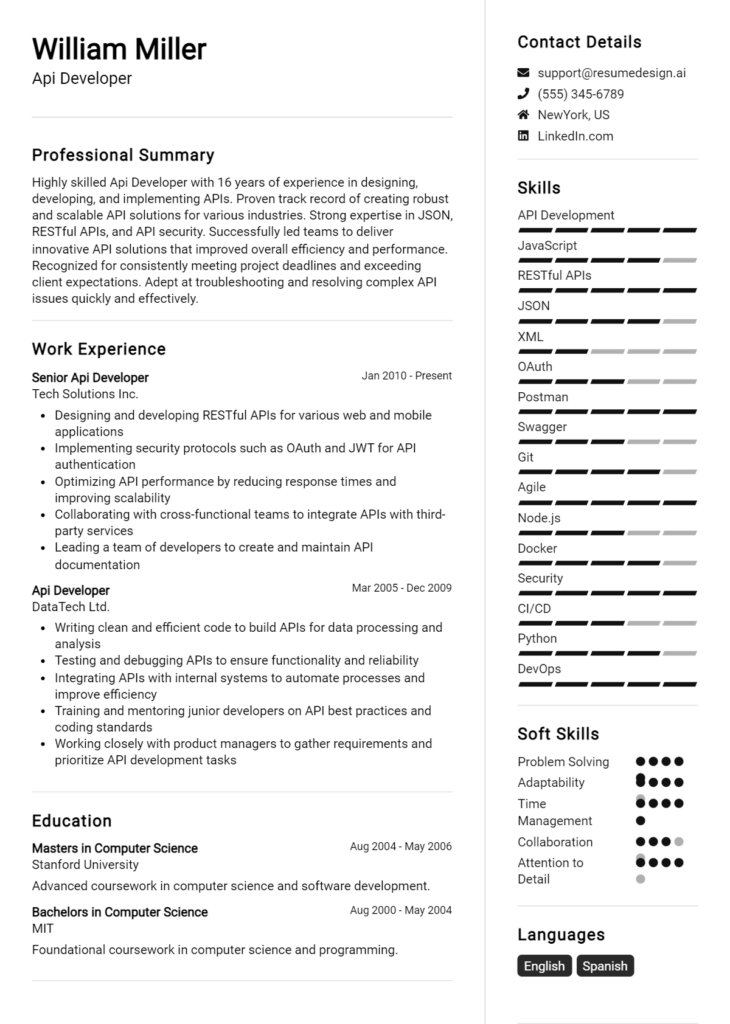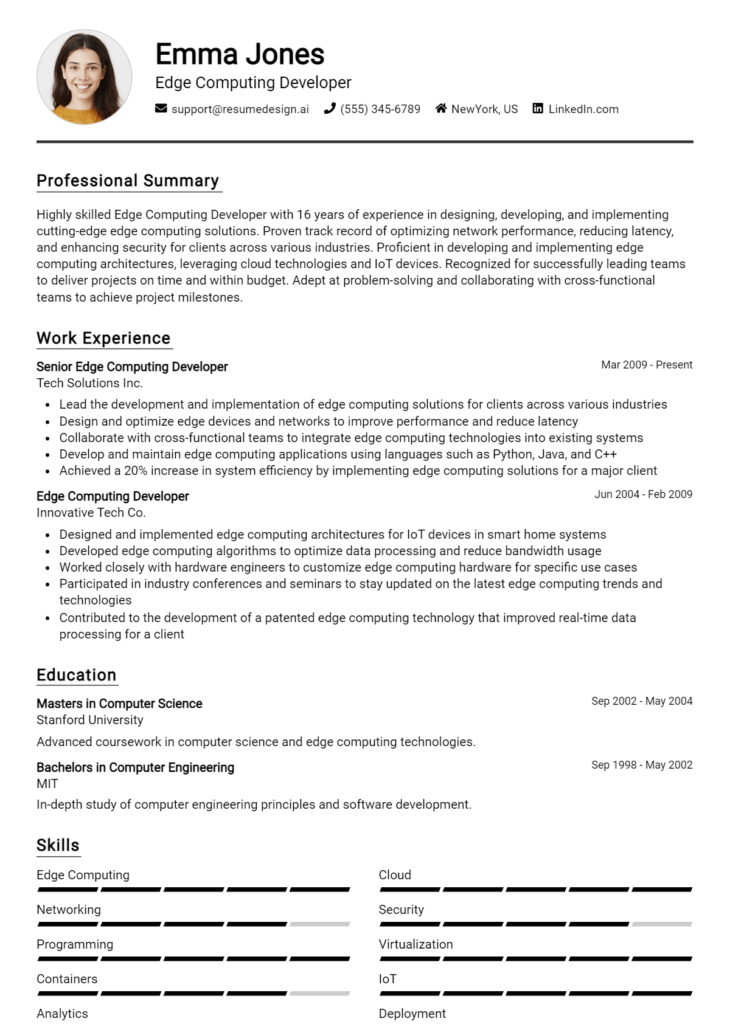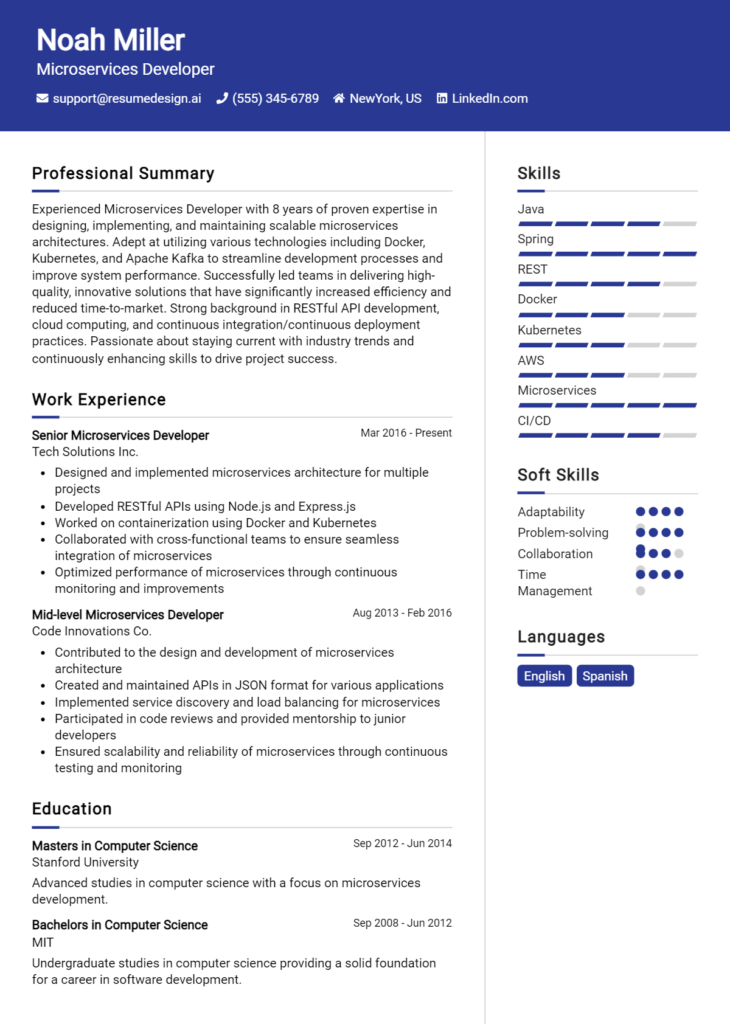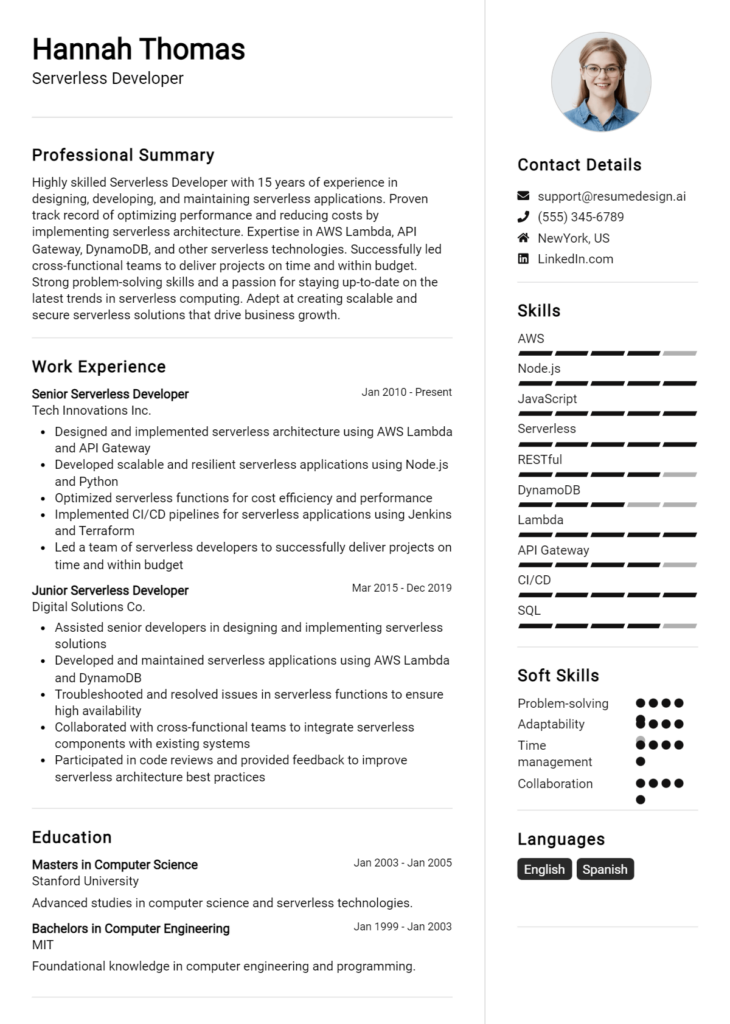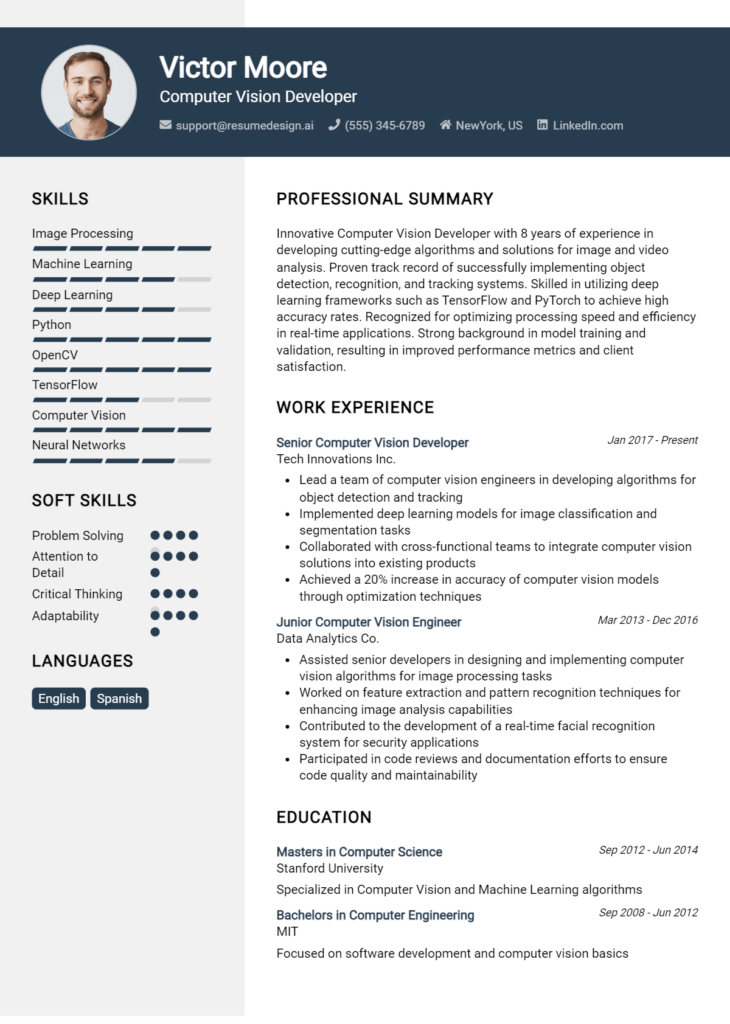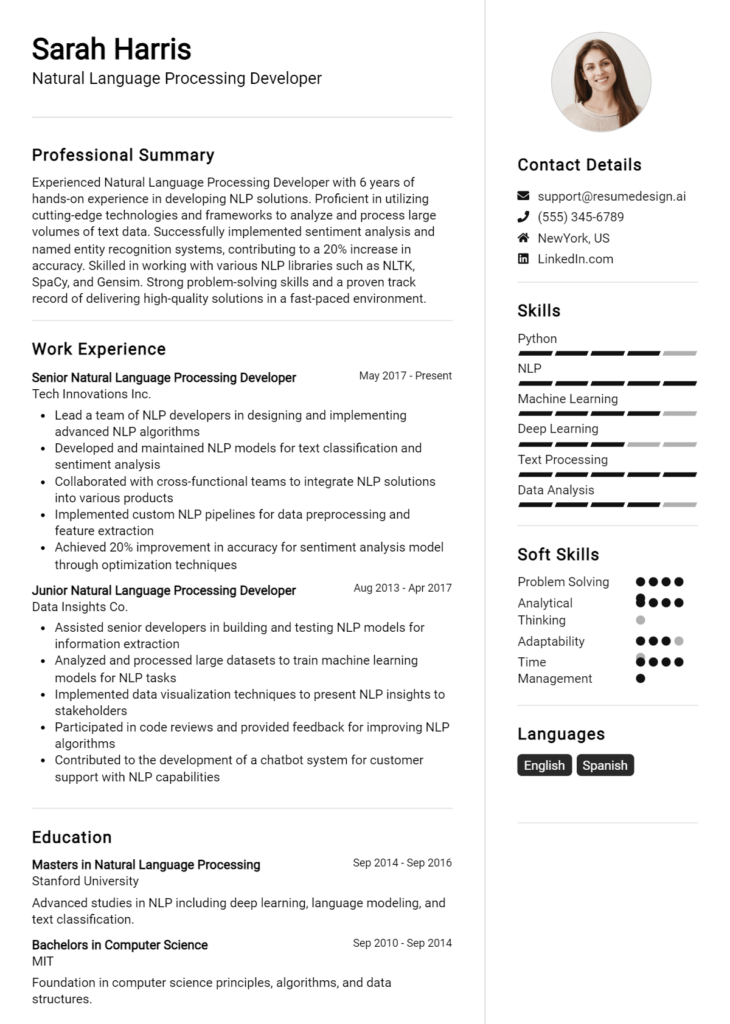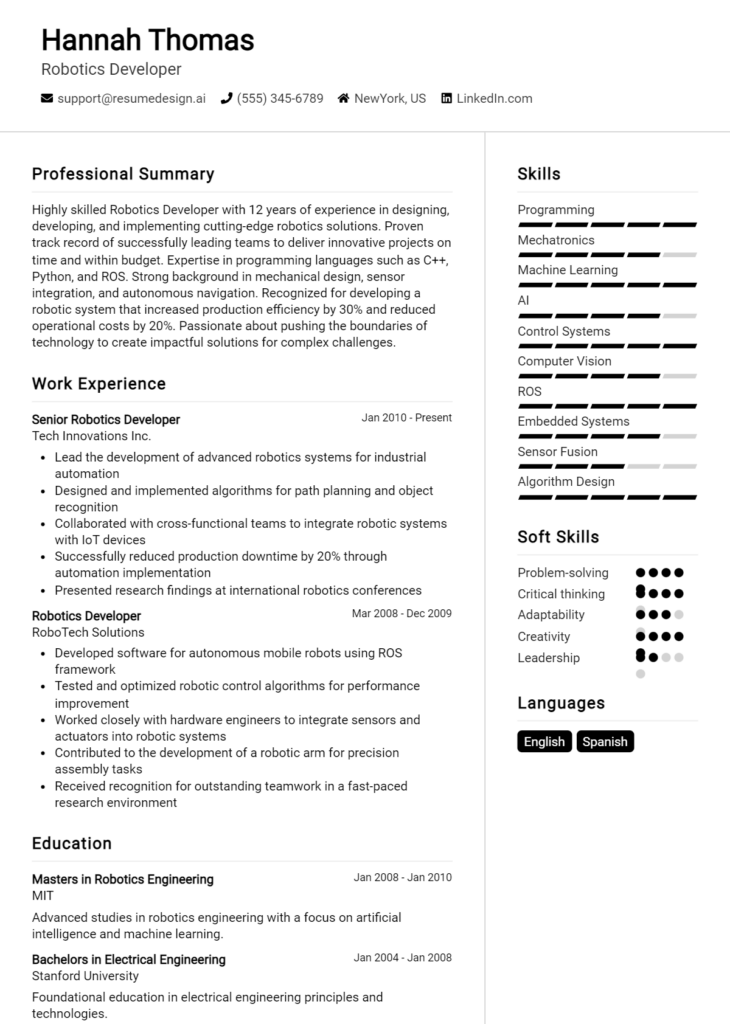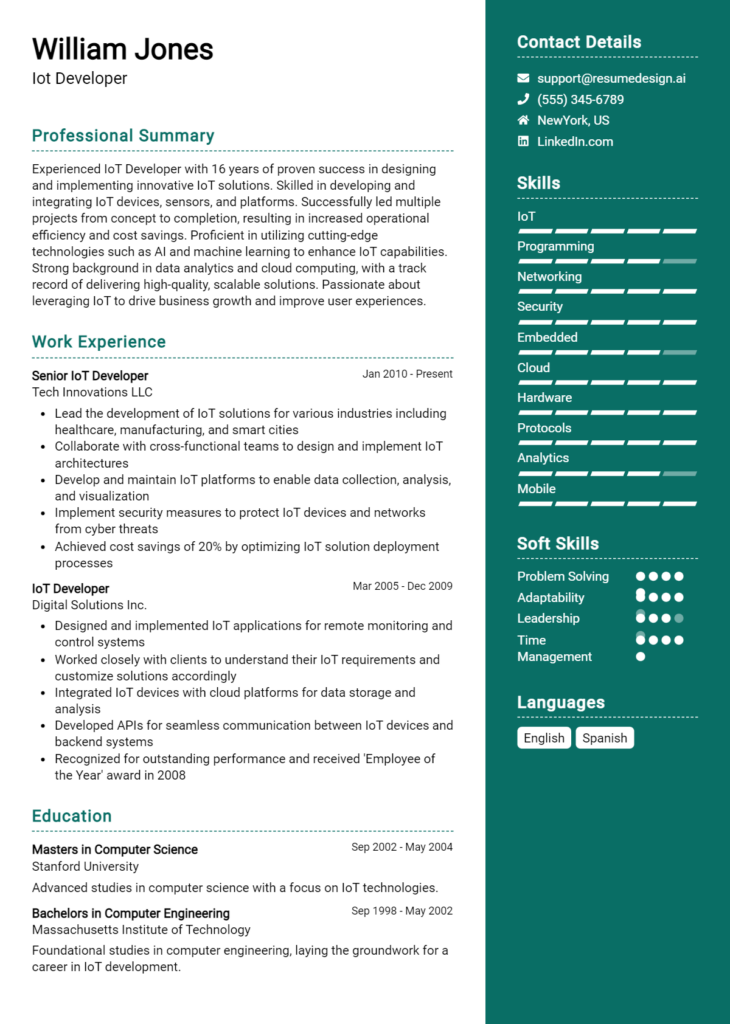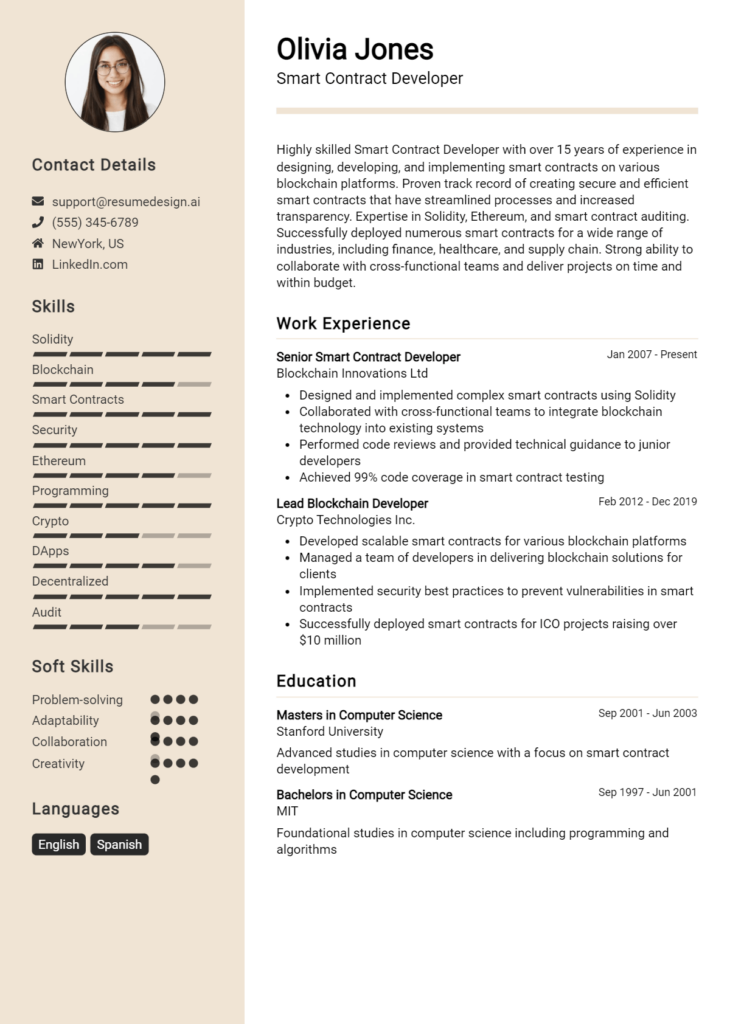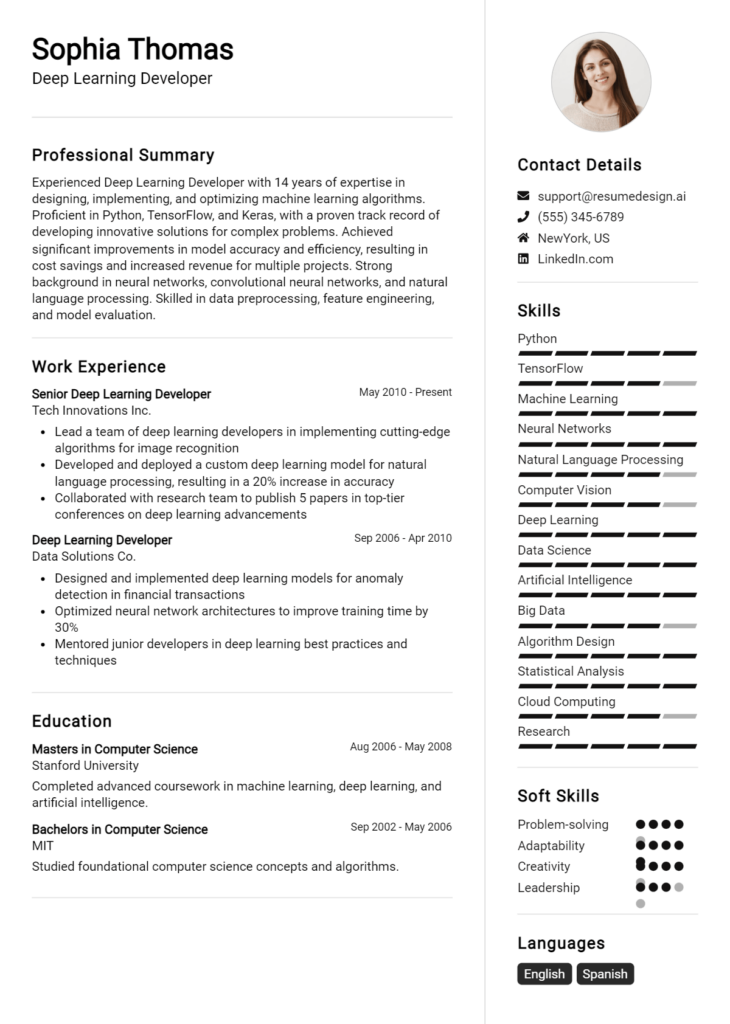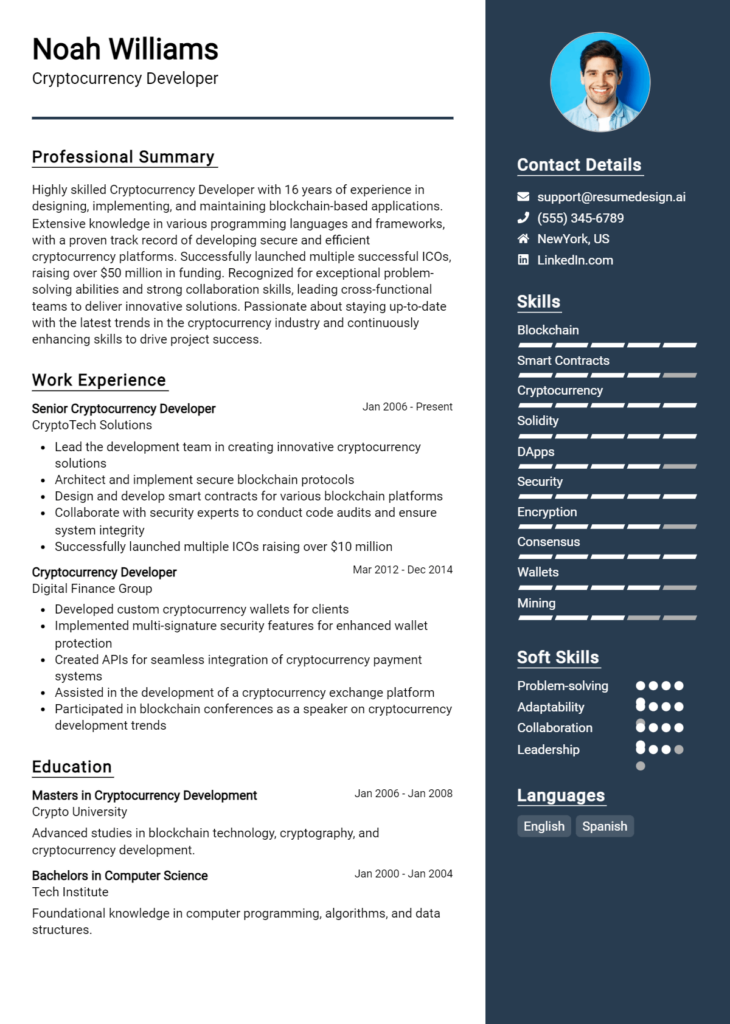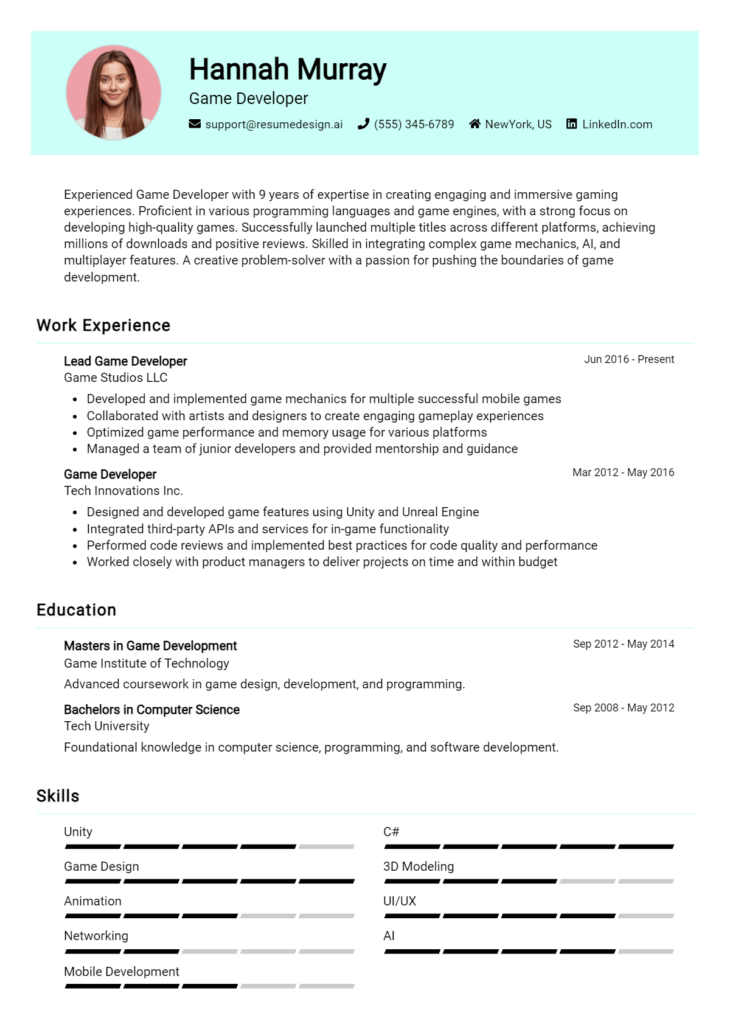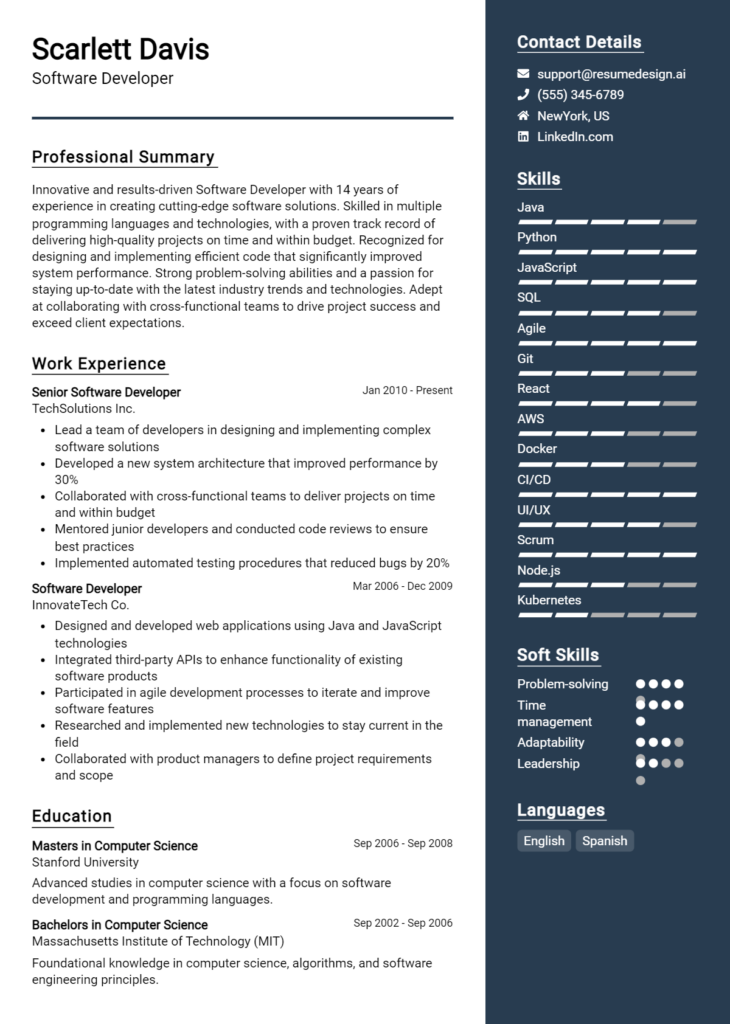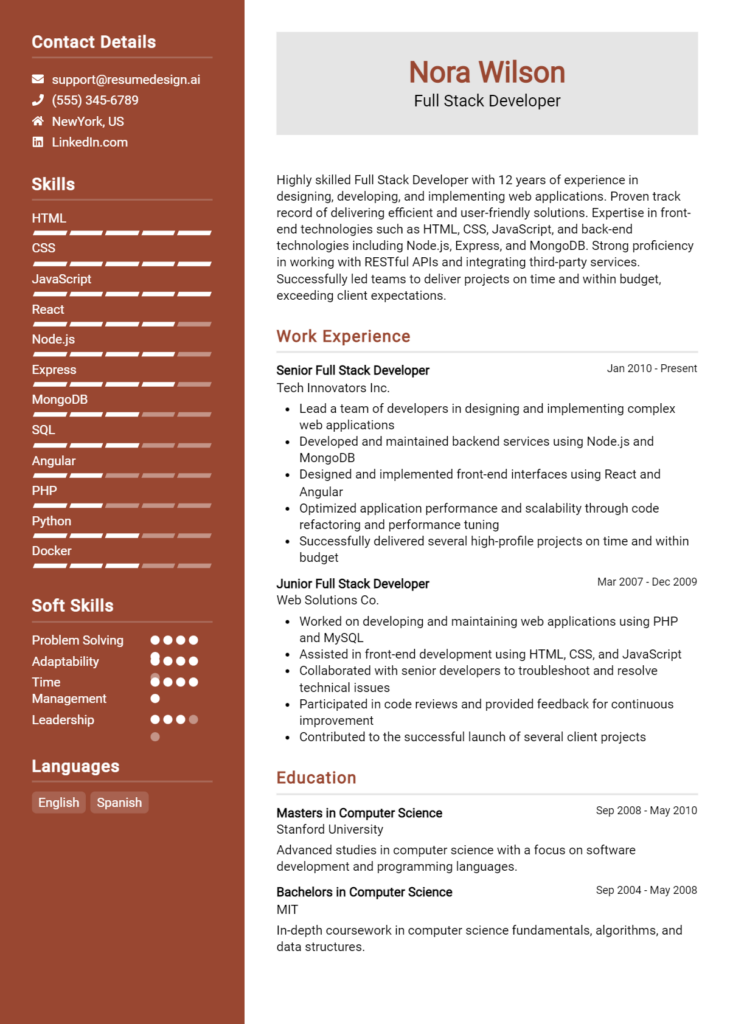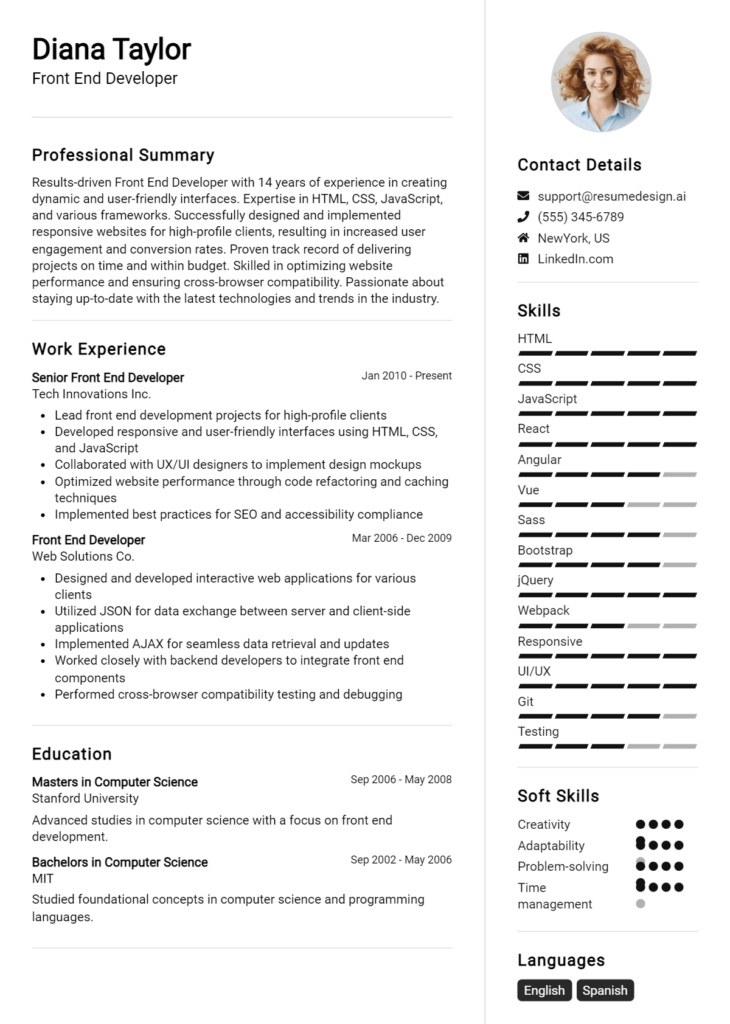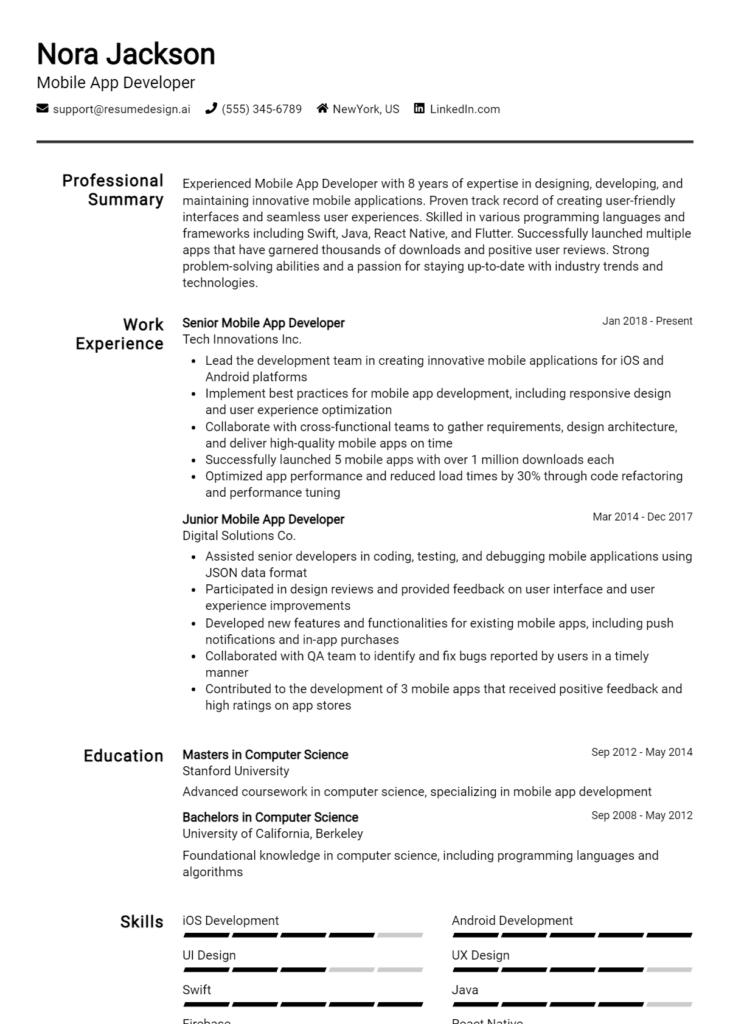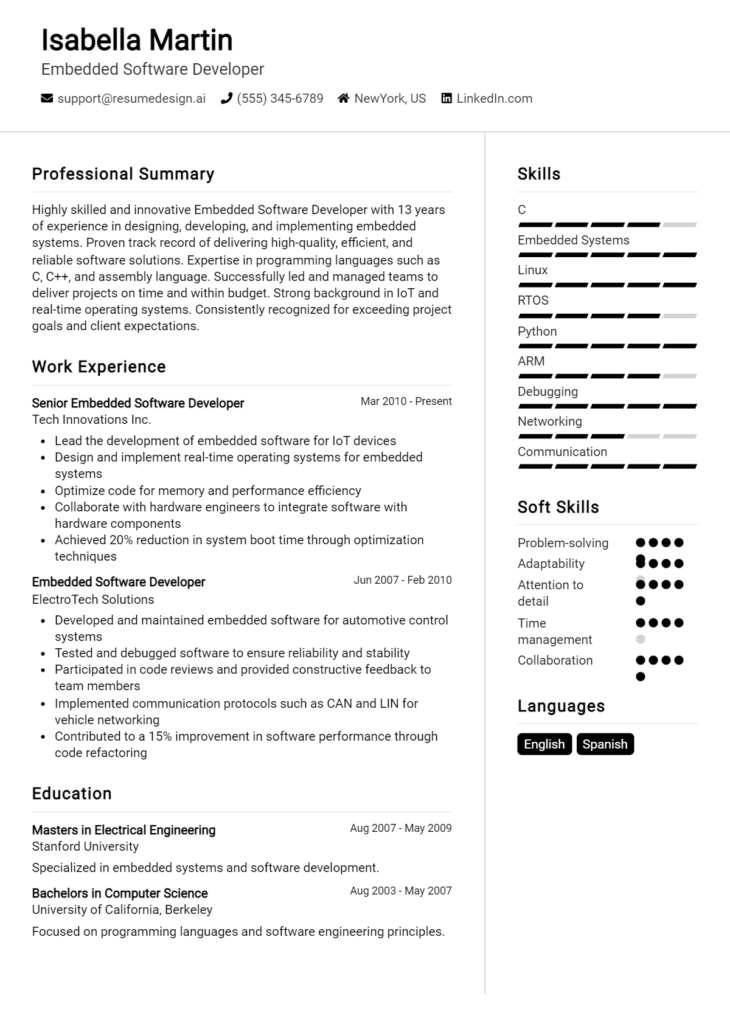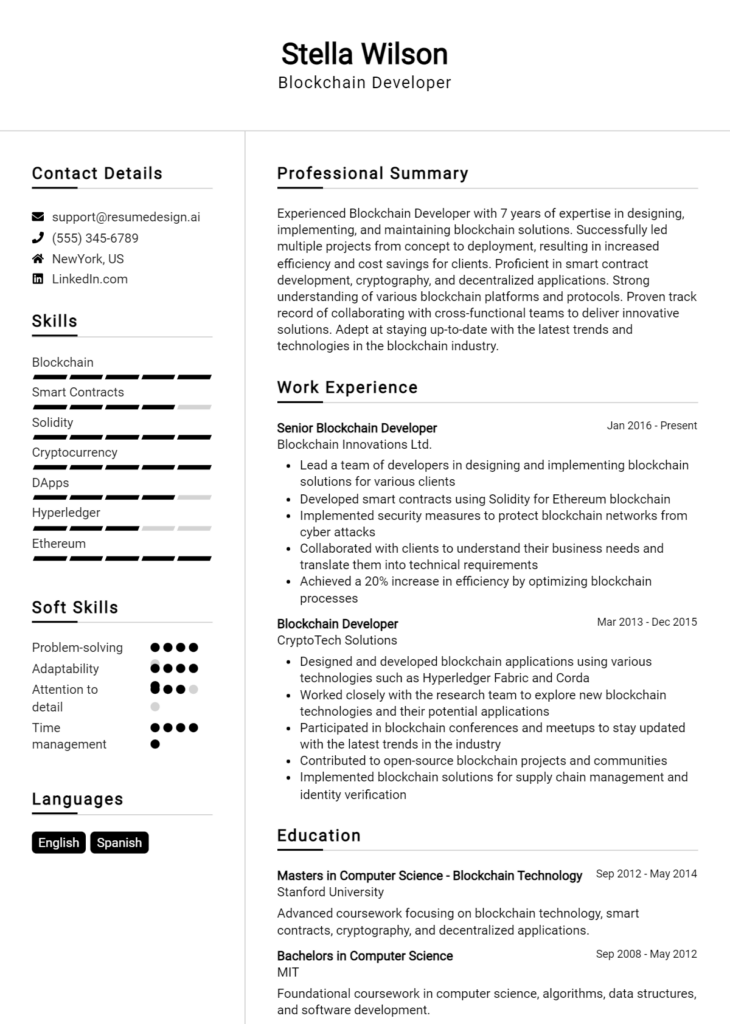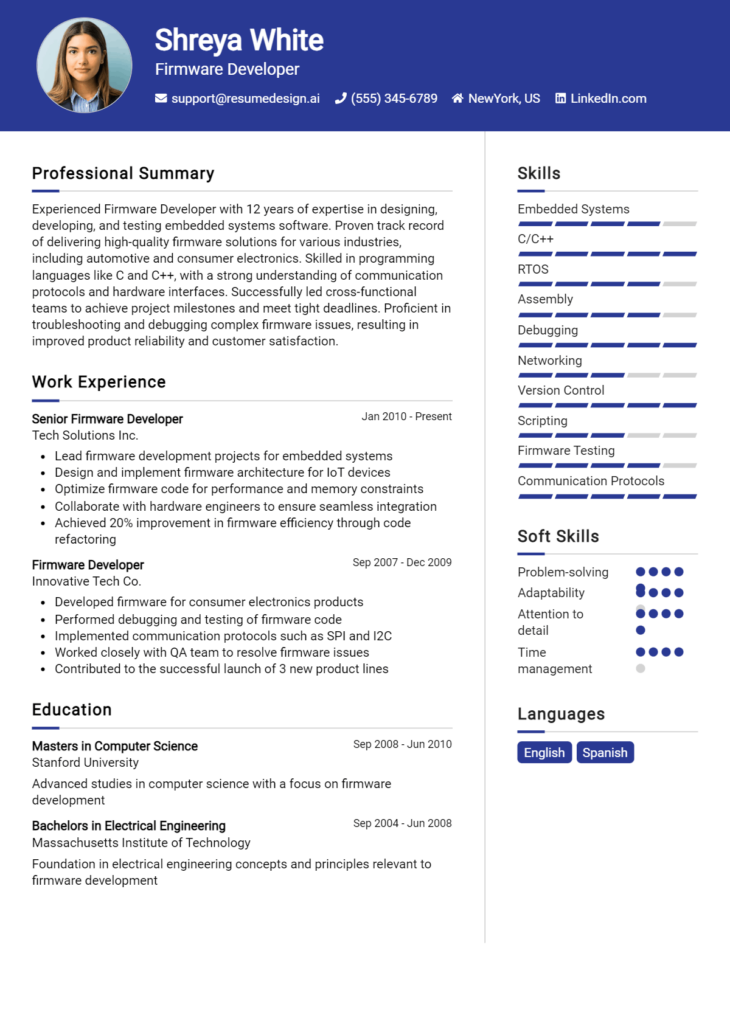High-Level Resume Tips for Back-End Developer Professionals
In the competitive landscape of technology careers, a well-crafted resume is essential for Back-End Developer professionals. It serves as the first impression you make on potential employers, encapsulating your skills, experiences, and achievements in a concise format. A strong resume not only highlights your technical expertise but also tells a story of your professional journey, illustrating how you can contribute to an organization’s success. This guide will provide practical and actionable resume tips specifically tailored for Back-End Developer professionals, ensuring your resume stands out in a crowded job market.
Top Resume Tips for Back-End Developer Professionals
- Tailor your resume to the specific job description by incorporating relevant keywords and phrases from the posting.
- Highlight your technical skills prominently, including programming languages (e.g., Java, Python, Ruby) and frameworks (e.g., Node.js, Django).
- Showcase relevant work experience, including internships, freelance projects, and contributions to open-source projects.
- Quantify your achievements with specific metrics, such as performance improvements, reduction in load times, or successful project completions.
- Include a section for certifications and relevant training that enhances your qualifications, such as AWS Certified Developer or Scrum Master certification.
- Demonstrate your problem-solving abilities by detailing projects that showcase your analytical skills and approach to complex challenges.
- Use clear and concise language; avoid jargon unless it is widely recognized in the industry.
- Incorporate a portfolio link or GitHub profile to provide tangible examples of your work and coding capabilities.
- Highlight soft skills, such as teamwork, communication, and project management, which are critical in collaborative development environments.
- Keep your resume to one page if possible, ensuring that it is easy to read and well-organized.
By implementing these tips, you can significantly increase your chances of landing a job in the Back-End Developer field. A well-structured resume that effectively showcases your skills and achievements will not only attract hiring managers but also demonstrate your professionalism and readiness to contribute to their team.
Why Resume Headlines & Titles are Important for Back-End Developer
In the competitive field of back-end development, a well-crafted resume headline or title plays a critical role in making a strong first impression. A compelling headline can instantly grab the attention of hiring managers and succinctly summarize a candidate's key qualifications in a single impactful phrase. This element of the resume should be concise, relevant, and directly related to the specific job being applied for, effectively setting the tone for the rest of the application. By highlighting essential skills and experiences, a strong resume headline can differentiate a candidate from the crowd and pave the way for further consideration.
Best Practices for Crafting Resume Headlines for Back-End Developer
- Keep it concise: Aim for one to two impactful phrases.
- Be role-specific: Tailor the headline to match the job description.
- Highlight key skills: Include relevant technical skills and tools.
- Showcase experience level: Indicate years of experience or seniority.
- Use action-oriented language: Employ strong verbs to convey capabilities.
- Avoid jargon: Keep the language clear and accessible to non-technical recruiters.
- Incorporate measurable achievements: Mention specific contributions or successes.
- Reflect your unique value: Highlight what sets you apart from other candidates.
Example Resume Headlines for Back-End Developer
Strong Resume Headlines
"Experienced Back-End Developer Specializing in Microservices and API Integration"
“Proficient Back-End Engineer with 5+ Years in Scalable Web Applications Development"
“Results-Driven Software Developer with Expertise in Python and Cloud Technologies"
Weak Resume Headlines
“Back-End Developer Looking for Opportunities”
“IT Professional with Some Skills”
The strong headlines are effective because they are specific and directly communicate the candidate's expertise and relevant experience, making it easy for hiring managers to see their value at a glance. In contrast, the weak headlines lack specificity and fail to convey any meaningful information about the candidate's qualifications or strengths, which can lead to disinterest and missed opportunities. By focusing on clarity and relevance, strong headlines can significantly enhance a resume's impact.
Writing an Exceptional Back-End Developer Resume Summary
A well-crafted resume summary is crucial for a Back-End Developer, as it serves as the first impression for hiring managers. This brief yet impactful section quickly highlights the candidate's key skills, relevant experience, and notable accomplishments within the context of back-end development. A strong summary not only captures attention but also conveys a sense of direction and purpose, making it easier for recruiters to assess the applicant's fit for the role. Importantly, it should be concise, impactful, and tailored to the specific job description to maximize its effectiveness.
Best Practices for Writing a Back-End Developer Resume Summary
- Quantify Achievements: Use specific numbers and metrics to demonstrate your contributions and successes.
- Focus on Skills: Highlight key technical skills such as programming languages, frameworks, and tools relevant to back-end development.
- Tailor for the Job: Customize your summary to align with the specific requirements and keywords from the job description.
- Be Concise: Keep your summary brief, ideally within 2-4 sentences, to maintain clarity and impact.
- Showcase Relevant Experience: Mention your years of experience and the types of projects you've worked on that are pertinent to the role.
- Emphasize Problem-Solving: Highlight your ability to solve complex problems and improve system performance or efficiency.
- Use Action Verbs: Start sentences with strong action verbs to convey a sense of accomplishment and initiative.
- Avoid Jargon: Ensure your summary is easily understood by avoiding unnecessary technical jargon that may confuse non-technical recruiters.
Example Back-End Developer Resume Summaries
Strong Resume Summaries
Dynamic Back-End Developer with over 5 years of experience in building scalable web applications using Node.js and MongoDB. Successfully optimized database queries leading to a 30% increase in application performance for a major e-commerce platform.
Results-oriented Back-End Developer skilled in Python and Django, with a proven track record of delivering high-quality code in fast-paced environments. Instrumental in reducing server response time by 25% through innovative API design.
Detail-oriented Back-End Developer with 7+ years of experience in RESTful API development and cloud integration. Enhanced system reliability by implementing automated testing procedures, resulting in a 40% reduction in production errors.
Weak Resume Summaries
Back-End Developer with some experience in coding and programming.
I am a developer looking for opportunities to grow and contribute to projects.
The strong resume summaries effectively demonstrate the candidates' relevant experience, quantifiable achievements, and specific technical skills, making them stand out to hiring managers. In contrast, the weak summaries are vague, lack concrete examples, and do not highlight any unique qualifications or accomplishments, reducing their impact in a competitive job market.
Work Experience Section for Back-End Developer Resume
The work experience section of a Back-End Developer resume is pivotal in demonstrating a candidate's technical proficiency and their capacity to contribute to and lead development teams. This section not only highlights the technologies and methodologies a candidate is familiar with but also illustrates their ability to deliver high-quality products within deadlines. By quantifying achievements—such as performance improvements, successful project completions, or team leadership—candidates can effectively align their experience with industry standards, making a compelling case for their candidacy.
Best Practices for Back-End Developer Work Experience
- Detail your technical expertise by specifying programming languages, frameworks, and tools used in each role.
- Quantify your achievements with specific metrics, such as reduced load times, increased system efficiency, or successful project completions.
- Highlight collaborative efforts, showcasing your experience working with cross-functional teams, product managers, and front-end developers.
- Employ action verbs to convey your contributions and impact clearly, such as 'developed', 'led', 'optimized', or 'implemented'.
- Focus on relevant projects and experiences that align with the job description of the role you are applying for.
- Include any leadership roles held, specifying how you guided teams or mentored junior developers.
- Maintain clarity and conciseness, ensuring each point is direct and easy to understand.
- Regularly update this section to reflect your most current and relevant experiences, ensuring it remains aligned with evolving industry standards.
Example Work Experiences for Back-End Developer
Strong Experiences
- Engineered a microservices architecture that improved system scalability by 50%, enabling the platform to handle 3x the user traffic without any downtime.
- Led a team of 5 developers to successfully migrate legacy systems to a modern cloud-based infrastructure, resulting in a 30% reduction in operational costs.
- Implemented an automated testing suite that decreased deployment errors by 40%, significantly enhancing the overall product quality and reliability.
- Collaborated with front-end developers to design and integrate RESTful APIs, improving data retrieval speeds by 25% and enhancing user experience.
Weak Experiences
- Worked on various projects involving back-end development.
- Responsible for coding and testing applications.
- Participated in team meetings to discuss project status.
- Assisted in the development of software applications.
The strong experiences listed demonstrate quantifiable outcomes, technical leadership, and effective collaboration, showcasing the candidate's ability to deliver concrete results in their roles. In contrast, the weak experiences lack specificity, measurable outcomes, and clear responsibilities, making them less impactful and failing to effectively communicate the candidate's capabilities and contributions to potential employers.
Education and Certifications Section for Back-End Developer Resume
The education and certifications section of a Back-End Developer resume is crucial in showcasing a candidate's academic background, industry-relevant certifications, and commitment to continuous learning. This section allows potential employers to assess the candidate's foundational knowledge and technical skills that are essential for the role. By including relevant coursework, certifications, and specialized training, candidates can greatly enhance their credibility and demonstrate their alignment with the job requirements, making a compelling case for their ability to contribute effectively to the organization.
Best Practices for Back-End Developer Education and Certifications
- Prioritize relevant degrees such as Computer Science, Software Engineering, or Information Technology.
- Include industry-recognized certifications such as AWS Certified Developer or Microsoft Certified: Azure Developer Associate.
- List relevant coursework that demonstrates proficiency in programming languages, database management, and web services.
- Highlight any specialized training or bootcamps that focus on back-end technologies and frameworks.
- Keep the section concise, focusing on the most pertinent qualifications that relate directly to the job role.
- Use clear formatting to distinguish between degrees, certifications, and coursework for better readability.
- Update this section regularly to reflect new certifications or educational achievements.
- Consider adding projects or practical experiences that stem from your education to reinforce your skills.
Example Education and Certifications for Back-End Developer
Strong Examples
- Bachelor of Science in Computer Science, XYZ University, 2020
- AWS Certified Developer – Associate, Amazon Web Services, 2021
- Coursework in Database Management Systems, Software Development, and Web Technologies
- Full Stack Developer Bootcamp, ABC Training Institute, 2022
Weak Examples
- High School Diploma, Generic High School, 2015
- Certification in Microsoft Office Suite, 2019
- Coursework in Art History and English Literature
- Outdated Java Certification, 2017
The examples listed as strong are considered relevant because they directly align with the skills and knowledge required for a Back-End Developer role, showcasing both academic qualifications and industry-recognized certifications. In contrast, the weak examples indicate a lack of relevance to the position, featuring outdated or unrelated qualifications that do not support the candidate's technical capabilities in back-end development.
Top Skills & Keywords for Back-End Developer Resume
As a Back-End Developer, possessing the right skills is crucial for crafting an effective resume that showcases your technical prowess and problem-solving abilities. Employers look for candidates who not only have a solid foundation in programming languages and frameworks but also possess strong interpersonal skills to collaborate effectively within a team. A well-rounded skill set enhances your ability to contribute to projects, optimize server-side logic, and design robust APIs, ultimately making you a valuable asset to any development team. To help you stand out in the competitive job market, it’s important to emphasize both your hard and soft skills in your resume. For more insights on how to effectively highlight your skills, check out this skills guide.
Top Hard & Soft Skills for Back-End Developer
Soft Skills
- Problem-Solving
- Communication
- Team Collaboration
- Adaptability
- Time Management
- Attention to Detail
- Critical Thinking
- Creativity
- Empathy
- Conflict Resolution
Hard Skills
- Proficiency in Programming Languages (e.g., Java, Python, Ruby)
- Database Management (e.g., SQL, NoSQL)
- API Development and Integration
- Server Management (e.g., Linux, AWS)
- Version Control Systems (e.g., Git)
- Knowledge of Frameworks (e.g., Node.js, Django)
- Data Structures and Algorithms
- Web Security Principles
- Familiarity with Microservices Architecture
- Testing and Debugging Skills
Emphasizing these skills in your resume will not only highlight your technical capabilities but also demonstrate your ability to work effectively in a team and adapt to changing project requirements. Additionally, for guidance on presenting your work experience effectively, consider incorporating relevant projects and roles that showcase your skills in action.
Stand Out with a Winning Back-End Developer Cover Letter
Dear Hiring Manager,
I am writing to express my interest in the Back-End Developer position at [Company Name], as advertised on [Job Board/Company Website]. With a strong background in server-side programming and a passion for building robust, scalable applications, I am excited about the opportunity to contribute to your team. My experience in languages such as Python, Ruby, and Java, coupled with my proficiency in database management systems like PostgreSQL and MongoDB, positions me as a strong candidate who can help drive the success of your projects.
In my previous role at [Previous Company Name], I successfully designed and implemented RESTful APIs that improved data retrieval times by 30%. Collaborating closely with front-end developers, I ensured seamless integration between server and client-side components, enhancing the overall user experience. Additionally, I utilized cloud services such as AWS and Azure to deploy applications, ensuring high availability and reliability. My commitment to writing clean, maintainable code, along with my experience implementing best practices in version control and testing, has consistently resulted in the delivery of high-quality software on time.
I am particularly drawn to [Company Name] because of your commitment to innovation and the emphasis you place on data-driven decision-making. I am eager to bring my skills in back-end development and my proactive approach to problem-solving to your team. I am confident that my technical expertise, combined with my ability to work collaboratively in a fast-paced environment, will make a positive impact at [Company Name].
Thank you for considering my application. I look forward to the possibility of discussing how I can contribute to the exciting projects at [Company Name]. Please feel free to contact me at your earliest convenience to schedule a conversation.
Sincerely,
[Your Name]
[Your LinkedIn Profile]
[Your Phone Number]
[Your Email Address]
Common Mistakes to Avoid in a Back-End Developer Resume
When crafting a resume as a Back-End Developer, it's crucial to highlight your technical skills and experiences effectively. However, many candidates make common mistakes that can overshadow their qualifications. Avoiding these pitfalls can significantly enhance your chances of securing an interview. Below are some frequent errors to watch out for:
Vague Job Descriptions: Not providing specific details about your responsibilities or technologies used can leave hiring managers confused about your capabilities. Always include measurable achievements and relevant tools.
Lack of Relevant Keywords: Many companies use Applicant Tracking Systems (ATS) to filter resumes. Failing to include industry-specific keywords can result in your resume being overlooked. Tailor your resume to match the job description closely.
Ignoring Soft Skills: While technical skills are vital, soft skills such as teamwork, communication, and problem-solving are equally important. Neglecting to mention these can make your application less compelling.
Overloading with Technical Jargon: While it’s important to demonstrate your technical knowledge, using excessive jargon can alienate non-technical readers. Aim for clarity and ensure your resume is accessible to all potential reviewers.
Unorganized Formatting: A cluttered or difficult-to-read resume can detract from your qualifications. Use a clean, professional format with clear headings and bullet points to improve readability.
Not Showcasing Projects: Failing to include personal or professional projects can diminish your resume's impact. Highlighting relevant projects demonstrates your practical experience and coding skills.
Neglecting Continuous Learning: The tech field evolves rapidly. Not mentioning any recent courses, certifications, or self-study efforts can make it seem like you’re not keeping up with industry trends.
Typos and Grammatical Errors: Simple mistakes can create a negative impression of your attention to detail. Always proofread your resume or have someone else review it before submission to catch any errors.
Conclusion
In summary, the role of a Back-End Developer is crucial in building and maintaining the server-side logic that powers applications. Key responsibilities include server management, database management, and ensuring application performance and scalability. Proficiency in programming languages such as Python, Java, or Ruby, along with familiarity with databases and APIs, is essential for success in this field. Additionally, understanding security protocols and version control systems can greatly enhance a developer's capabilities.
As you reflect on your qualifications and experiences, now is the perfect time to review your Back-End Developer resume. Ensure that it highlights your technical skills, relevant projects, and accomplishments effectively. To assist you in this process, explore valuable resources like resume templates, which provide a solid foundation for your resume design. You can also utilize the resume builder to create a polished and professional document tailored to your expertise. For inspiration, browse through resume examples that showcase successful Back-End Developer resumes, and don’t forget to refine your job application with cover letter templates that complement your resume.
Take action today: update your resume and ensure you stand out in the competitive job market as a skilled Back-End Developer!

